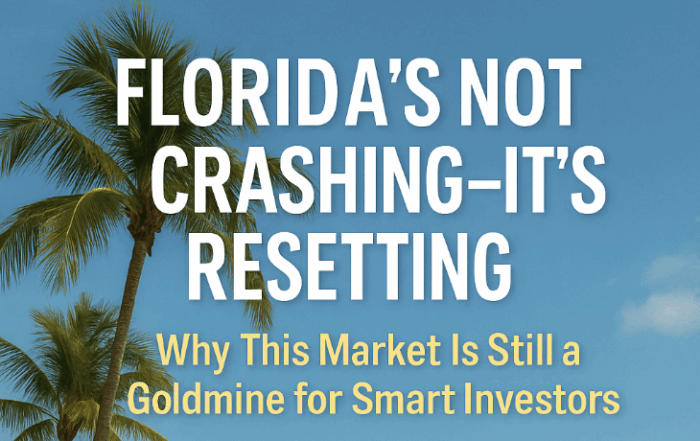
Who Pays Closing Costs When Selling a House by Owner?
Selling a house by owner, commonly known as FSBO (For Sale By Owner), is a path many homeowners choose to save on real estate commissions and gain more control over the transaction. However, understanding who pays for closing costs in this scenario is crucial. These costs can significantly impact your net proceeds, so knowing what to expect and how to negotiate is essential.
Understanding Closing Costs
Closing costs are the fees and expenses associated with finalizing a real estate transaction. These costs can include:
- Title Insurance: Protects against potential ownership disputes.
- Appraisal Fees: Paid to a professional appraiser to determine the property’s market value.
- Escrow Fees: Fees paid to the escrow company that handles the transaction.
- Recording Fees: Fees for officially recording the sale with local government offices.
- Transfer Taxes: Taxes levied by the state or local government for transferring the title.
- Loan Origination Fees: Fees charged by the lender for processing a mortgage.
- Home Inspection Fees: Paid to inspect the property for any issues before the sale.
- Attorney Fees: In some states, hiring an attorney to oversee the transaction is required.
These costs typically range from 2% to 5% of the property’s purchase price and are generally divided between the buyer and seller. However, in FSBO transactions, the allocation of these costs can vary, and understanding your options can help you navigate this aspect of the sale.
Negotiating Closing Costs in FSBO Transactions
When selling a house by owner, a lot of times, closing costs can be negotiated. As a seller, you might find that buyers are willing to cover some or all of the closing costs, especially in a competitive market. This can be an attractive selling point that helps you close the deal faster or retain more of the proceeds.
For example, in a buyer’s market where there are more homes for sale than buyers, you might offer to cover some of the closing costs to make your property more appealing. Conversely, in a seller’s market, where demand outpaces supply, you might negotiate for the buyer to cover these costs entirely.
Here are some strategies to consider when negotiating closing costs:
-
Understand Local Norms: In some areas, it is customary for the seller to cover certain costs, such as title insurance or transfer taxes. Knowing what is typical in your area can give you a stronger negotiating position.
-
Offer Concessions: If your home has been on the market for a while, offering to pay a portion of the closing costs can incentivize buyers. This can be particularly effective if the buyer is on the fence or if the property needs some repairs.
-
Include Closing Costs in the Sale Price: One common strategy is to agree to cover the closing costs but add them to the sale price. This way, the buyer can finance these costs as part of their mortgage, and you don’t lose out on your net proceeds.
-
Negotiate Before the Offer: Address the topic of closing costs early in negotiations, ideally before you receive an offer. This can prevent misunderstandings later and ensure that both parties are on the same page.
Wholesaler Transactions: A Different Dynamic
When it comes to wholesaler transactions, where you’re buying a deal from a wholesaler, the dynamics are different. Typically, the buyer pays all closing costs in these transactions. This is because wholesalers generally assign the purchase contract to the buyer, who then takes over the responsibility of completing the transaction.
Here’s why this is the standard practice:
-
Protecting the Wholesaler’s Profit Margin: The wholesaler’s profit is usually the difference between the contract price with the seller and the price they assign to the buyer. By having the buyer cover all closing costs, the wholesaler ensures that their profit margin remains intact.
-
Assignment of Contract: In wholesaler deals, the wholesaler isn’t selling the property itself but rather the rights to the purchase contract. The buyer, therefore, steps into the wholesaler’s shoes and assumes all responsibilities, including the closing costs.
-
No Direct Property Ownership: Since the wholesaler never actually owns the property (they simply assign the contract), they avoid direct involvement in closing costs. This makes it logical for the buyer, who becomes the actual owner, to bear these expenses.
While this is a typical arrangement, buyers should still be aware of the closing costs involved and consider them when negotiating the purchase price.
Closing Costs in Conventional Sales
In more traditional real estate transactions, where a real estate agent is involved, closing costs are typically divided between the buyer and the seller. The specific allocation of these costs can vary based on local customs and the terms negotiated in the sales contract.
For instance, in a conventional sale:
-
Buyers might pay for:
- Loan origination fees
- Appraisal fees
- Home inspection fees
- Prepaid insurance and taxes
-
Sellers might cover:
- Real estate agent commissions
- Transfer taxes
- Title insurance for the buyer
- Recording fees
Understanding these norms is essential for negotiating effectively. Even in conventional sales, there’s often room to negotiate who pays for what. Sellers might offer to cover closing costs to attract buyers, while buyers might request seller concessions if they are tight on cash.
Maximizing Your Profit by Managing Closing Costs
Whether you’re selling by owner, buying from a wholesaler, or involved in a conventional sale, managing closing costs effectively can have a significant impact on your bottom line. Here are a few final tips to help you maximize your profit:
-
Get Multiple Estimates: Shop around for services like title insurance and escrow to ensure you’re getting the best rates. Sometimes, you can save a considerable amount just by comparing options.
-
Review the Settlement Statement: Before closing, review the settlement statement (also known as the closing disclosure) carefully. Make sure all the agreed-upon terms are reflected accurately and that there are no unexpected charges.
-
Negotiate Smartly: Focus on the aspects of the transaction where you have the most leverage. Sometimes, it’s more effective to negotiate a lower purchase price rather than trying to shift specific closing costs.
-
Consider the Tax Implications: Some closing costs can be tax-deductible, either for the buyer or the seller. Consult with a tax professional to understand how these deductions might impact your financial situation.
Conclusion
Understanding who pays closing costs when selling a house by owner is crucial for anyone involved in a real estate transaction. Whether you’re navigating an FSBO sale, dealing with a wholesaler, or engaged in a conventional sale, being informed about the allocation of these costs can help you make better financial decisions and maximize your profit. By being prepared to negotiate and understanding the norms in your market, you can ensure a smoother, more profitable transaction.
Call to Action: Click the ‘Get Started’ button to start receiving real estate education and access to our properties.
Pick your expert. Book your free 15-minute consult now. We are here to help!
Our Top Articles
The Power of Home Equity: Utilizing Your Property’s Value
allanmcnabb2025-07-01T20:40:35+00:00July 1st, 2025|Comments Off on The Power of Home Equity: Utilizing Your Property’s Value
Your home is more than just a place to live; it’s one of the most significant financial [...]
Protected: Here’s How to Get Assignment Fees Financed (Even When Lenders Push Back)
Jorge Vazquez2025-07-01T20:45:37+00:00June 30th, 2025|Comments Off on Protected: Here’s How to Get Assignment Fees Financed (Even When Lenders Push Back)
This content is password protected. To view it please enter your password below: Password:
Florida’s Not Crashing—It’s Resetting: Why This Market Is Still a Goldmine for Smart Investors
Jorge Vazquez2025-06-28T22:52:38+00:00June 28th, 2025|Comments Off on Florida’s Not Crashing—It’s Resetting: Why This Market Is Still a Goldmine for Smart Investors
The so-called "decline" in Florida’s housing market is nothing like 2008. Back then, we were dealing [...]
Property Profit Academy:
✔ Learn to buy properties with little to no money down.
✔ Build a $10M portfolio step by step.
✔ Master strategies like BRRRR and house hacking.








